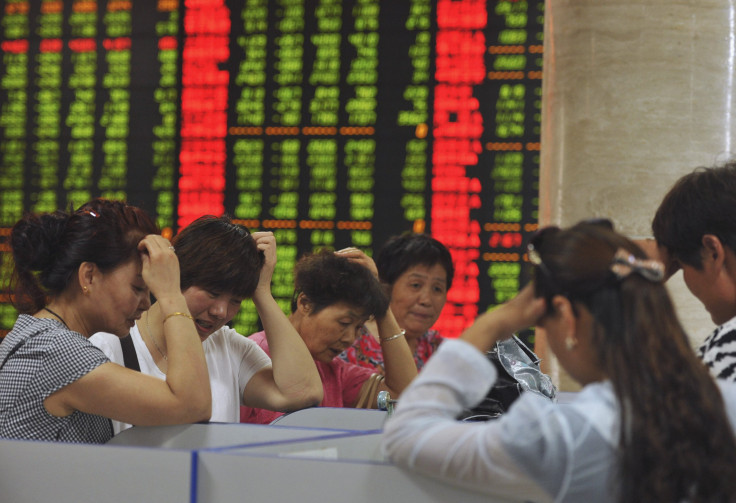'Black Monday': Global Stocks Have Lost $5 Trillion Since China's Yuan Devaluation

The dramatic fall in global stocks Monday that rattled investor concerns is only the latest development in the financial turmoil that has been brewing since China abruptly devalued its currency, the yuan, just two weeks ago. More than $5 trillion has been wiped from global stocks since the Aug. 11 move, underscoring the strong reaction that has ensued from China’s economic slowdown. The massive selloffs have triggered fears that China’s economic troubles are worse than they initially appeared.
Asian and European stocks slid drastically Monday, and Wall Street was expected to follow suit just a few days after the Dow Jones index slid by 530 points following a severe sell-off. European stocks have already suffered losses of 400 billion euros for the continent’s 300 largest companies, Reuters reported. Chinese stocks fell by 8.5 percent in Monday’s sell-off in what has been dubbed “Black Monday” for the world’s second-largest economy. It was the largest fall in China’s stock market since the 2007-09 financial crisis.
Global interest rates are already nearing historic lows, dampening hopes that central banks around the world might be able to help stimulate more investor activity by lowering them even further. The U.S. Federal Reserve had been expected to raise its main interest rate in the coming months, but the latest sell-offs have posed a prickly challenge to these plans. The Federal Reserve had cut the interest rate to near zero in December 2008.
[WATCH] Chinese shares fell 8.5% and U.S. stocks are expected to follow suit: #BlackMonday http://t.co/TtSlYriB1G pic.twitter.com/H7914cemSq
— WJZ | CBS Baltimore (@cbsbaltimore) August 24, 2015China contributed to 38 percent of global growth in 2014, and contributes around 15 percent of global output. The Chinese government has been trying to make its target of 7 percent growth for 2015, which is still a strong growth rate compared to many other global economies but would represent China’s slowest growth rate in more than 20 years.
© Copyright IBTimes 2024. All rights reserved.





















